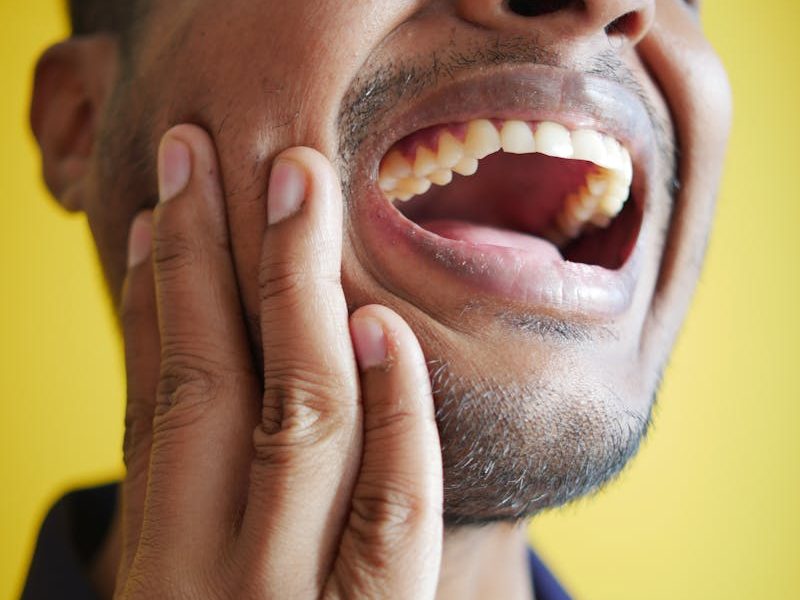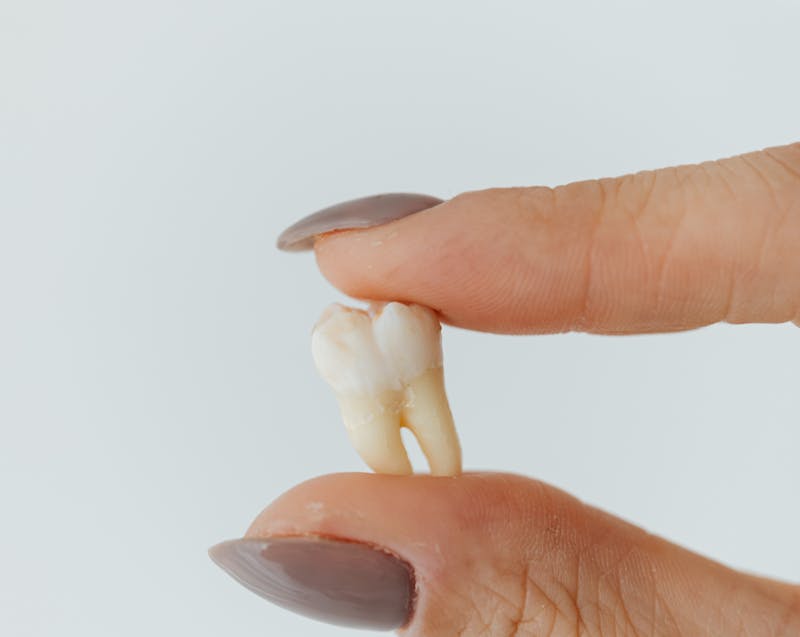
Common Dental Emergencies and How to Handle Them Safely
Disclaimer: The material provided is designed to inform readers about oral health and preventive care. It should not be considered medical advice. Consult a registered dentist for guidance specific to your oral health needs.
- Acting quickly during dental emergencies can prevent permanent damage and save teeth.
- Protective gear, such as mouthguards, significantly reduces the risk of injury during fitness activities.
- Knowing first-aid steps for common emergencies (knocked-out teeth, broken teeth, soft tissue injuries) is essential.
- Maintaining proper nutrition, hydration, and oral hygiene supports both dental health and overall fitness.
- Regular dental checkups help detect issues early and reduce the likelihood of urgent emergencies.
- Keeping a compact dental emergency kit during workouts or sports can improve response time.
- Stress management and avoiding risky habits like chewing hard foods or grinding teeth protect long-term oral health.
Dental emergencies can strike at the most inconvenient times, often disrupting not only daily life but also fitness routines and physical activity. For health-conscious individuals, a sudden dental issue can interfere with workouts, diet, and overall well-being. Understanding common dental emergencies, knowing how to handle them safely, and taking preventive measures is crucial for maintaining oral health while staying active.
This article explores frequent dental emergencies, step-by-step first aid, and practical tips for fitness enthusiasts to minimize risk and respond effectively.
Understanding Dental Emergencies
Dental emergencies refer to conditions that require immediate attention to prevent long-term damage, severe pain, or infection. While not all oral discomfort qualifies as an emergency, certain situations demand urgent care. Examples include knocked-out teeth, severe toothaches, soft tissue injuries, and broken restorations.
Active individuals and athletes are particularly susceptible to dental emergencies. High-impact sports, intense workouts, and even dietary habits can increase the likelihood of injury or damage. Understanding the types of emergencies, their causes, and how to respond is essential for maintaining both oral and overall health.
Key points to understand about dental emergencies:
- Immediate action can prevent permanent damage or loss of teeth.
- Fitness activities may increase the risk of trauma to teeth and gums.
- A proactive approach, including preventive gear and proper nutrition, significantly reduces emergency incidents.
Most Common Dental Emergencies

Knocked-Out Tooth (Avulsed Tooth)
A tooth that has been completely dislodged is known as an avulsed tooth. This is one of the most time-sensitive dental emergencies.
Causes:
- Contact sports such as basketball, football, or martial arts.
- Accidental falls during running or gym activities.
- Impact from gym equipment or outdoor obstacles.
Immediate Actions:
- Handle the tooth by the crown, not the root, to prevent further damage.
- Rinse gently with saline or milk; avoid scrubbing the tooth.
- Reinsert the tooth into its socket if possible.
- Keep the tooth moist using milk or saline solution if reinsertion is not possible.
- Seek immediate attention from a dentist who specializes in emergency services; ideally within 30–60 minutes for the best chance of saving the tooth.
Fitness-specific prevention:
- Wear a properly fitted mouthguard during high-contact sports.
- Avoid high-risk movements or exercises without protective gear.
Broken or Chipped Tooth
A chipped or fractured tooth can range from a minor cosmetic issue to a serious problem affecting the tooth’s structure and pulp.
Causes:
- Biting down on hard foods or supplements.
- Accidents during exercise or sports.
- Grinding or clenching teeth under stress or during workouts.
Immediate Actions:
- Clean the area by rinsing with warm water.
- Apply a cold compress externally to reduce swelling and discomfort.
- Save any broken pieces of the tooth for potential reattachment by a dentist.
- Avoid chewing on the affected side until evaluated.
Preventive Advice for Fitness Enthusiasts:
- Avoid chewing ice, protein bars, or other hard items during workouts.
- Wear mouthguards for contact or high-intensity sports.
- Practice controlled movements with gym equipment to reduce the risk of accidental facial impact.
Severe Toothache
Toothaches can indicate infection, decay, or damage to the nerve inside the tooth. They often become emergencies when pain is intense or accompanied by swelling and fever.
Causes:
- Dental decay or cavities.
- Abscess or infection caused by bacteria.
- Trauma or repetitive stress on teeth.
First Aid Steps:
- Rinse with warm saltwater to reduce bacterial load and soothe irritation.
- Take over-the-counter pain relief if safe for your medical condition.
- Avoid very hot or cold foods and beverages until the tooth is assessed.
- Contact a dentist who specializes in emergency services for prompt evaluation and treatment.
Connection to Fitness and Health:
- Dehydration or nutrient deficiencies can worsen dental pain.
- High-sugar energy drinks or post-workout snacks may accelerate decay.
- Maintaining balanced nutrition supports oral resilience.
Soft Tissue Injuries (Gums, Lips, and Tongue)
Soft tissue injuries often occur during high-intensity activities and can range from minor cuts to significant lacerations requiring professional care.
Causes:
- Accidental biting during exercise.
- Contact with equipment, weights, or flooring.
- Collisions during sports or outdoor activities.
First Aid:
- Rinse the mouth thoroughly with clean water or saline.
- Apply a mild antiseptic to control infection risk.
- Use a cold compress externally to reduce swelling.
- If bleeding persists or the injury is deep, seek urgent dental attention.
Preventive Measures:
- Use mouthguards during contact sports.
- Ensure gym equipment is positioned safely.
- Focus on technique and awareness during high-risk activities.
Lost Filling or Crown
A dislodged filling or crown can lead to pain, sensitivity, and potential tooth damage if left untreated.
Causes:
- Chewing hard foods or supplements.
- Grinding teeth during stress or workouts.
- Trauma from impact or accidents.
Temporary Care:
- Rinse the mouth and keep the crown or filling in a safe container.
- Avoid chewing on the affected side.
- Use temporary dental cement if available until a dentist can provide permanent repair.
Preventive Tips:
- Regular dental checkups to ensure restorations are secure.
- Use mouthguards and protective gear during sports or high-intensity activities.
- Avoid using teeth for tasks other than eating.
Safe Handling Tips for Dental Emergencies
Handling dental emergencies correctly is crucial to preserving oral health. Staying calm, knowing the steps, and having an emergency plan can make a significant difference.
Emergency Management Steps:
- Stay calm: Panicking can worsen the situation and delay response.
- Assess the injury: Identify whether it involves a tooth, soft tissue, or both.
- Apply first aid: Use cold compresses, antiseptics, or temporary dental materials as needed.
- Keep emergency dental supplies on hand: Include gauze, gloves, saline, temporary filling material, and a small container.
- Seek professional help immediately: Contact a dentist who specializes in emergency services for prompt care.
Fitness-Specific Emergency Kit Recommendations:
- Compact kit for gym bags or sports backpacks.
- Include items like mouthguards, pain relievers, and antiseptic wipes.
- Educate teammates or workout partners on basic emergency handling.
When to Seek Professional Help:
- Persistent bleeding or swelling.
- Severe pain or sensitivity.
- Knocked-out or fractured teeth.
- Lost restorations affecting function or appearance.
Preventive Measures for Fitness Enthusiasts

Prevention is always better than treatment. Individuals who prioritize health and fitness can minimize dental emergencies by incorporating protective and proactive measures.
Protective Gear:
- Mouthguards for contact sports and high-intensity workouts.
- Helmets or face protection when cycling, skating, or skiing.
Nutrition and Hydration:
- Consume calcium-rich foods such as dairy, leafy greens, and fortified alternatives.
- Maintain vitamin D intake to support strong teeth.
- Limit sugary energy drinks and protein supplements that may increase decay risk.
- Drink plenty of water to maintain saliva flow and neutralize acids.
Regular Dental Checkups:
- Routine examinations detect potential issues before they become emergencies.
- Cleanings remove plaque and tartar, reducing the risk of decay and gum disease.
Avoid Risky Habits:
- Refrain from chewing ice, opening packages with teeth, or biting hard objects.
- Practice controlled movements with gym equipment.
- Be mindful during high-impact exercises or contact sports.
Stress Management:
- High stress can lead to bruxism (teeth grinding), increasing the risk of fractures.
- Incorporate relaxation techniques such as stretching, yoga, or meditation.
Long-Term Oral Health and Fitness Connection
Dental emergencies are more than temporary inconveniences—they can disrupt workouts, hinder recovery, and even affect overall health. Infection from untreated dental issues can spread, potentially impacting heart health and energy levels.
Maintaining oral health is integral to a fitness-focused lifestyle. Strong teeth and healthy gums allow for optimal nutrition, comfortable workouts, and consistent performance. Integrating preventive strategies, emergency preparedness, and professional dental care ensures that oral health supports, rather than hinders, fitness goals.
Fitness-Oriented Tips for Long-Term Oral Health:
- Incorporate regular hydration and a nutrient-rich diet to strengthen teeth.
- Monitor for early signs of decay, gum inflammation, or sensitivity.
- Make dental appointments part of the overall health routine, similar to regular physical checkups.
- Encourage family members or workout partners to adopt similar preventive measures.
Conclusion
Dental emergencies can happen unexpectedly, but with knowledge, preparation, and prompt action, their impact can be minimized. Health-conscious individuals, athletes, and fitness enthusiasts are especially vulnerable due to the nature of their activities, making awareness and preventive care essential.
Key takeaways include:
- Understanding the types of dental emergencies and their urgency.
- Acting quickly with proper first aid measures.
- Using protective gear during sports and high-risk activities.
- Maintaining oral health through nutrition, hydration, and regular checkups.
- Preparing an emergency dental kit for immediate response.
By integrating oral health into a fitness-focused lifestyle and knowing when to consult a dentist who specializes in emergency services, individuals can reduce the risk of dental trauma, prevent long-term complications, and continue pursuing their health and fitness goals without interruption.